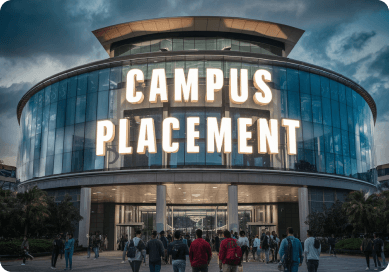Enter OTP



Frankfurt , Germany

Frankfurt , Germany

Cost Of Living

Undergraduate Fees International Students

Post Graduate Fees International Students

Goethe University Frankfurt stands out as Germany’s financial and legal academic powerhouse, uniquely positioned in Europe’s banking capital with unrivaled industry ties to the European Central Bank (ECB), Deutsche Bank, and top law firms. Its "House of Finance" is a globally renowned hub for economic research, while the natural sciences faculty collaborates with Nobel Prize-winning institutes like the Max Planck Society. As one of the few German universities with a full-spectrum university hospital (Niederrad Campus), it excels in medical innovation. The university’s strong interdisciplinary focus bridges humanities and STEM, supported by its historic Institute for Social Research (birthplace of critical theory).
Philosopher, sociologist, and musicologist, central figure of the Frankfurt School. Known for his critical theory, cultu... View More
Philosopher, sociologist, and musicologist, central figure of the Frankfurt School. Known for his critical theory, cultural criticism, and opposition to fascism. Taught and worked extensively at Goethe University. View Less
One of the most influential living philosophers and social theorists. Studied philosophy and earned his doctorate at Goe... View More
One of the most influential living philosophers and social theorists. Studied philosophy and earned his doctorate at Goethe University. Known for the theory of communicative action and work on democracy and public discourse. View Less
– Philosopher and sociologist, also a founder of the Frankfurt School of Critical Theory. He was Director of the Insti... View More
– Philosopher and sociologist, also a founder of the Frankfurt School of Critical Theory. He was Director of the Institute for Social Research at Goethe University. View Less
Physicist and Nobel Laureate (1943). Known for the Stern–Gerlach experiment, which confirmed quantum spin. He was a pr... View More
Physicist and Nobel Laureate (1943). Known for the Stern–Gerlach experiment, which confirmed quantum spin. He was a professor at Goethe University during the experiment in 1922. View Less
Nobel Prize winner in Physiology or Medicine (1908). Developed the concept of a “magic bullet” for targeting disease... View More
Nobel Prize winner in Physiology or Medicine (1908). Developed the concept of a “magic bullet” for targeting disease and pioneered chemotherapy. He worked closely with researchers in Frankfurt and taught in the university’s early days. View Less
Prominent German television journalist and talk show host. Studied history and political science at Goethe University.
Nobel Prize winner in Physics (1967) for his work on stellar nucleosynthesis. Studied at Goethe University in his early... View More
Nobel Prize winner in Physics (1967) for his work on stellar nucleosynthesis. Studied at Goethe University in his early academic years before moving to the U.S. View Less
Influential economist and former member of the German Council of Economic Experts. Studied and earned his doctorate at G... View More
Influential economist and former member of the German Council of Economic Experts. Studied and earned his doctorate at Goethe University. View Less
Leading legal historian and jurist. He was Rector of Goethe University and founded the Max Planck Institute for European... View More
Leading legal historian and jurist. He was Rector of Goethe University and founded the Max Planck Institute for European Legal History. View Less
President of Germany (1984–1994). Studied law and history at Goethe University before entering politics and public se... View More
President of Germany (1984–1994). Studied law and history at Goethe University before entering politics and public service. View Less
Goethe University Frankfurt boasts a modern, urban campus seamlessly integrated into Germany's financial capital, featuring state-of-the-art facilities across its four main locations. The Westend Campus, centered around the iconic Poelzig Ensemble (a protected modernist landmark), houses the humanities and social sciences in historic yet renovated buildings with cutting-edge lecture halls and the main university library (over 5 million volumes). The Riedberg Campus serves as a science hub with high-tech labs for physics, biochemistry, and the new Quantitative Science Center, while the Niederrad Campus combines the University Hospital Frankfurt with advanced medical research institutes. The Sports Campus Ginnheim offers Olympic-grade athletic facilities. All campuses feature smart classrooms, interdisciplinary collaborative spaces, and 24/7 study areas, connected by Frankfurt's excellent public transport.
Life at Goethe blends urban energy with campus community:
200+ student groups – From the Finance Society to AI Ethics Collective
Kunstcafé – Student-run arts space for exhibitions and performances
Semester ticket – Free public transport across the Rhine-Main region
Nightlife – Historic Alt-Sachsenhausen pubs and multicultural clubs
Sports – 80+ university teams (including quidditch and e-sports)
Affordable living – Shared flats (WGs) from €400-600/month


Goethe’s Career Service delivers unparalleled industry access through:
Exclusive recruitment fairs with 200+ employers (Deutsche Bank, ECB, Siemens Healthineers)
Industry-tailored coaching (CV optimization, salary negotiation, and case interview prep)
Alumni network "Goethe Connect" linking students to graduates in top firms
Startup incubator for ventures in fintech, biotech, and AI
EU work visa guidance for international graduates
With 91% employability within a year, students leverage Frankfurt’s status as Europe’s financial capital for internships and jobs.
The below information is required while
completing the university application :
1. Academic Qualifications
Secondary school diploma equivalent to the German Abitur (e.g., IB Diploma, A-Levels, or country-specific qualifications verified via uni-assist).
Minimum grades: Typically 2.5 or better on the German grading scale (varies by program; competitive programs like Economics may require top scores).
Program-specific prerequisites:
STEM programs: Strong math/science background.
Humanities: Language proficiency or subject-specific knowledge.
2. Language Proficiency
German-taught programs (most Bachelor's programs):
TestDaF (4xTDN4), DSH-2, Goethe C2, or Telc C1.
Alternative: Some programs accept B2-level German with mandatory language courses.
English-taught programs (rare, e.g., Physics):
IELTS (6.5+), TOEFL (90+ iBT), or Cambridge C1 Advanced.
3. Application Process
Non-EU students: Apply via uni-assist (requires VPD document).
EU students: Direct application via the university portal.
Deadlines:
Winter semester: July 15 (non-EU), August 31 (EU).
Summer semester: January 15 (non-EU, limited programs), March 31 (EU).
4. Additional Documents
Translated/notarized copies of transcripts.
CV (for some programs).
Motivation letter (rarely required for Bachelor's).
Requirements may vary for each program. Please visit the program page for specific requirements.
Know moreGoethe University Frankfurt offers exceptional campus recruitment opportunities, leveraging its prime location in Germany’s financial capital to connect students with elite employers like Deutsche Bank, the European Central Bank (ECB), and leading law firms. The university’s Career Services hosts exclusive job fairs, on-campus interviews, and case competitions, while its House of Finance and Law School serve as direct pipelines to top-tier finance and legal careers. Strong ties to Frankfurt’s startup scene (e.g., fintech incubators) and global corporations (e.g., KPMG, Siemens Healthineers) ensure diverse opportunities across sectors.



Goethe University Frankfurt boasts a remarkable legacy of achievements, including 11 Nobel laureates like physicist Max von Laue and economist Paul Krugman, cementing its status as a global research leader. Ranked #1 in Germany for economics and business (CHE Ranking) and top 50 worldwide for law (QS), its House of Finance shapes EU monetary policy, while its medical faculty pioneered breakthroughs in mRNA and cancer immunotherapy. The university hosts 12 DFG Collaborative Research Centers, leads Europe’s quantum computing initiatives, and incubated fintech startups now valued at €1B+. With 90% graduate employability and unrivaled ties to Deutsche Bank, ECB, and Max Planck Society, Goethe blends academic prestige with real-world impact in Germany’s financial capital.


Awarded €25M+ in EU funding to lead quantum computing research with Max Planck Institutes.
Researchers contributed to BioNTech’s COVID-19 vaccine development, leveraging Frankfurt’s medical and biotech expertise.
Created Europe’s premier economics hub, training ECB policymakers and ranking #1 in Germany for finance (CHE).
Theodor Adorno and Jürgen Habermas developed Critical Theory at the university’s Institute for Social Research, reshaping global humanities.
Established through private donations (unique in Germany), becoming a symbol of liberal education and later a state institution.
Goethe University Frankfurt is a powerhouse of innovation and research, particularly renowned for its interdisciplinary collaborations between finance, natural sciences, and medicine. As a leader in economics and law, its "House of Finance" and "Center for Advanced Studies" drive cutting-edge policy research with direct impact on the European Central Bank and EU regulations. In STEM, the university excels in cancer research, quantum physics, and AI, partnering with the Max Planck and Fraunhofer Institutes, while its medical faculty pioneers clinical trials and digital health solutions. The university also fosters startup culture through its Innovation and Entrepreneurship Center, supporting spin-offs in fintech, biotech, and green energy.
The Frankfurt School thinkers developed early frameworks for understanding mass media manipulation, propaganda, and culture industry—concepts still central in media studies and social psychology.
Contributor: Hans Bethe → As a student at Goethe University, Bethe contributed to early theoretical nuclear physics, which later helped in understanding stellar nucleosynthesis and atomic processes.
Contributors: Max Horkheimer, Theodor Adorno, Herbert Marcuse → Not a physical invention, but Goethe University’s Institute for Social Research (Frankfurt School) gave rise to Critical Theory, which profoundly influenced philosophy, sociology, media theory, and cultural criticism globally.
Contributors: Otto Stern and Walther Gerlach → Conducted at Goethe University, this experiment proved quantum spin and demonstrated space quantization, a foundational result in quantum mechanics.














Embark on your educational journey with confidence! Our team of admission experts is here to guide you through the process. Book a free session now to receive personalized advice, assistance with applications, and insights into your dream school. Whether you're applying to college, graduate school, or specialized programs, we're here to help you succeed.
